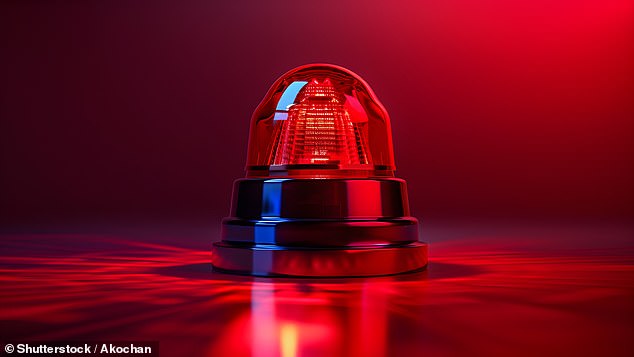The rate of unemployment grew to 5 per cent in the three months to September.
Unemployment has now reached a high not seen in a decade, not including the pandemic. The unemployment figure came in higher than economists were expecting.
It means that if you were to lose your job, the chances of easily being walking into another are falling.
Because of this, experts are warning people it is now more important than ever to build up an emergency financial buffer.
Kate Steere, money expert at comparison website Finder says: ‘This is exactly why an emergency fund isn’t just a “nice-to-have”.’
‘With unemployment ticking up and savings rates heading in the wrong direction, households are feeling the pressure.
‘If you face a sudden job loss, a cut in hours or an uptick in expenses, it’s there to step in and stop a short-term setback from turning into long-term debt.’
Below, we reveals how to build an savings buffer from a standing start.

Red alert: Experts are warning it is now more important than ever to have an emergency buffer with a weaking jobs market
1. Work out how much you will need
The rule of thumb for the amount you need in an emergency fund is to have enough cash to cover three to six months’ worth of essential expenses while you’re working and one to three years’ worth in retirement.
The emergency fund needs to cover your essential outgoings such as mortgage or rental payments, utility bills, food shopping.
Households spend an average of £2,062 on essentials each month, a report from stockbroker Hargreaves Lansdown found.
This means the average amount a household will need to have saved is between £6,186 and £12,327.
But this amount varies based on how much your monthly essential costs are.
Many fall down at the first hurdle when it comes to building emergency savings by believing they don’t have enough money to save in the first place.
This defeatist thinking prevents people from starting a saving habit at all, so shift your mindset.
What you may forget is that saving just £10 a week to put away for a rainy day is better than nothing.
Rachel Springall, finance expert at rates scrutineer Moneyfacts Compare says: ‘It is a misconception that saving a little bit here and there is not worth it.
‘This is untrue, all the pennies add up and they work harder in accounts that pay decent returns of interest.’
2. Check where you could find money to save
Once you have worked out how much you will need, the next step when it comes to building an emergency fund is checking to see where you can find the savings.
For example, on scanning your bank statements you might find you are wasting money on subscriptions you don’t use or forgot you were even paying for.
You could cancel these and put the money towards your emergency savings pot instead.
Andrew Hagger, founder of personal finance website MoneyComms says: ‘Look at your bank statements to see where you’re money is going – is there anything you can do without or cut back on so you can save that money for your emergency fund instead.’
3. Start emergency saving on payday
If you are trying to save, it is best to take the savings out on the day you get paid.
This is because the money will come out of your main account without you even realising.
Mr Hagger says: ‘If you leave it until the end of the month there may not be much left.’
You can set up a direct debit on payday to come out of your current account into a savings account, as many people do with their utility bills or rent or mortgage payments.
This is perhaps the ultimate way to save money without having to think about it and to totally put it out of your mind.
You could use apps like Plum to automatically save cash every single week. If it collected £20 a week from now, that is £140 saved by Christmas week.
4. Choose the best place to keep your emergency pot
A straightforward easy-access savings account or easy-access cash Isa, without any hidden catches, is ideal for your emergency fund.
You need to make sure it has no catches like withdrawal restrictions as you should be able to access your money as many times as you need without the interest rate dropping.
It’s no use keeping your emergency fund sitting in a bank account paying no interest.
The best easy-access account with no catches pays 4.15 per cent and is offered by Close Brothers Savings. So make sure you are getting a rate as close to this as possible.
Your savings account needs to at the very least be paying over the current rate of inflation which currently stands at 3.8 per cent otherwise you will be losing money in real terms if inflation comes in at 3.8 per cent this time next year.
You can sign up to This is Money’s savings alerts to get the best savings deals sent straight to your inbox as soon as they land.
SAVE MONEY, MAKE MONEY

Sipp cashback

Sipp cashback
£200 when you deposit or transfer £15,000

4.53% cash Isa

4.53% cash Isa
Trading 212: 0.68% fixed 12-month bonus

£20 off motoring

£20 off motoring
This is Money Motoring Club voucher

Free shares bundle

Free shares bundle
Get free UK shares worth up to £200

4.45% Isa with bonus

4.45% Isa with bonus
Now with no penalty for withdrawals
Affiliate links: If you take out a product This is Money may earn a commission. These deals are chosen by our editorial team, as we think they are worth highlighting. This does not affect our editorial independence. Terms and conditions apply on all offers.
